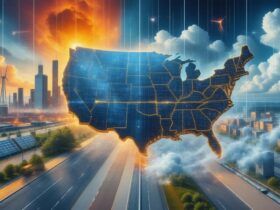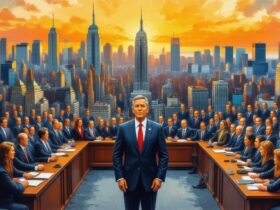The slogan "Make America Great Again," abbreviated to MAGA, has become synonymous with a significant political and cultural movement in the United States. Originally introduced by Ronald Reagan during his 1980 presidential campaign, it was revitalized by Donald Trump during his successful campaigns in 2016 and 2024. This article delves into the origins, evolution, and impact of the MAGA movement, exploring its core beliefs, the demographic it appeals to, and the controversy surrounding it.
Origins of the MAGA Slogan
The phrase first appeared as a campaign slogan by Reagan, aimed at rejuvenating a nation grappling with economic challenges, including high inflation and unemployment. By stirring a sense of national pride, Reagan’s call aimed to energize an electorate yearning for change. In a similar vein, Trump’s 2016 revival of the slogan sought to capitalize on feelings of discontent, frustration, and a perceived loss of American greatness. His adaptation emphasized a stark reversal of policy, pledging to prioritize American interests over global ones, which resonated with many voters.
The MAGA Movement and Its Core Beliefs
The MAGA movement emerged prominently during Trump’s candidacy, establishing itself as a platform rooted in nationalism. Supporters of MAGA believed that America had suffered a decline due to foreign influence and globalism. Consequently, the movement advocates for "America First" policies—emphasizing economic protectionism, reducing immigration, and reinstating what members perceive as traditional American values.
Significantly, MAGA rhetoric often incorporates a sharply combative tone, fostering a culture of extreme partisanship. Critics contend that this environment has encouraged divisive sentiments and fostered the propagation of various conspiracy theories. Allegations of racism, sexism, and hostility towards minority groups have often been associated with this movement’s discourse.
Demographics and Political Reach
MAGA’s appeal has primarily attracted conservative white working-class voters, who resonate with the movement’s promises of economic recovery and a return to conventional values. Trump’s non-establishment persona and business background were perceived as advantages, as many voters felt he understood their economic struggles untainted by political corruption. This populist appeal was a vital component of his success, presenting Trump not just as a candidate but as a representative of ordinary Americans.
Interestingly, Trump’s ability to pivot away from typical political decorum—with his direct insults and aggressive style—also resonated with supporters who appreciated his perceived authenticity in contrast to traditional politicians.
Legacy and Cultural Influence
The cultural impact of the MAGA movement is far-reaching. It represents more than a political slogan; it has influenced various facets of American culture, including art, media, and public discourse. Supporters have embraced the slogan in various forms, from merchandise to organizational branding, creating a recognizable and controversial identity. Opponents, too, have adopted the phrase, using it to critique Trump’s policies and the underlying ideologies of his movement.
Moreover, MAGA has sparked significant debate about race relations, immigration policies, and the nature of American identity, often leading to polarized viewpoints within the public sphere. The movement is frequently at the center of discussions regarding media representation and the impact of misinformation in modern politics.
In Conclusion
The "Make America Great Again" slogan has transitioned from a campaign tool to a powerful symbol of a political and cultural movement. It embodies a complex interplay of nationalism, economic protectionism, and a yearning for a perceived past greatness. As the political landscape continues to evolve, the MAGA movement remains a pivotal force shaping contemporary American politics, reflecting deep-seated beliefs about identity, belonging, and the direction of the nation. Understanding MAGA is essential for anyone looking to grasp the current dynamics of American political culture and its ongoing evolution.

















Leave a Reply